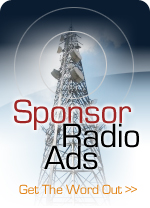Nocebo, Placebo, and You
As you should suppose there is an opposite to the placebo effect and it is called the nocebo effect, which is basically the physically negative things that take place in the body simply as a result of thinking on the wrong words.| Audio Options: | MP3 |
Nocebo, Placebo, and You
Until man comes to the saving knowledge of the Lord Jesus Christ, he is upside down actually believing he is right side up. Unregenerated man is dead in trespasses and sins (Ephesians 2:1) yet considers himself alive. Now for today's subject.
GOD SAID in Proverbs, Chapter 23, Verse 7:
For as he thinketh in his heart, so is he:
Much of God's word deals with thought and principles of developing and controlling it.
II Corinthians, Chapter 10, Verses 4-5:
4 (For the weapons of our warfare are not carnal, but mighty through God to the pulling down of strong holds;)
5 Casting down imaginations, and every high thing that exalteth itself against the knowledge of God, and bringing into captivity every thought to the obedience of Christ;
Every thought must be brought into alignment with Jesus Christ. When thoughts are brought into subjection to God's word, abundant and dynamic life is the product even to where God describes it like unto the days of heaven upon the earth (Deuteronomy 11:21). Once an individual enters the miracle of the new birth (see "Further With Jesus" on this web site), God gives power to transform the mind's thoughts. This process is akin to a blood transfusion. We replace the bad carnal thoughts with God's thoughts. The procedure is called the renewing of the mind...putting on the mind of Christ.
Romans, Chapter 12, Verse 2:
And be not conformed to this world: but be ye transformed by the renewing of your mind, that ye may prove what is that good, and acceptable, and perfect, will of God.
Romans, Chapter 13, Verse 14:
But put ye on the Lord Jesus Christ, and make not provision for the flesh, to fulfill the lusts thereof.
We are directed to control our thoughts. Phillipians, Chapter 4, Verse 8:
Finally, brethren, whatsoever things are true, whatsoever things are honest, whatsoever things are just, whatsoever things are pure, whatsoever things are lovely, whatsoever things are of good report; if there be any virtue, and if there be any praise, think on these things.
Thoughts affect our lives in a dramatic fashion. For example, Jesus equates an adulterous thought with the actual deed of adultery (Matthew 5:28). God places such heavy weight on thoughts simply because, as God says of man, "as he thinketh in his heart, so is he."
Thoughts are silent words that become deeds and speech. The Bible says God spoke us into existence with words from that which is invisible and that the power of death and life are in the tongue (Proverbs 18:21). Words are serious business. Words affect our overall well-being and controlling them is critical.
MAN SAID that the Bible is just an old book written by men and not to be given credentials of supernatural origin, definitely not to be taken literally and that all religions have their own superstitious version of how it is.
Now THE RECORD.
Thousands of years before it began to be abundantly clear that thoughts were pivotal to health and peace and purpose, God said it was so, and he said it over and over again with great emphasis. It is just another point that the creator of all things also knows all.
You have of course heard of the placebo effect. Basically, the placebo effect is the ability of the mind to think oneself better. Many clinical measurements have been made over the years concerning this phenomenon. In these studies people were treated for a particular ailment. Part of the group was treated with the appropriate medication while the others were given a placebo, often a harmless sugar pill. After the trial, the results of both groups were measured. The improvement rate of those taking the harmless sugar pill ranked in at about one out of three, or 33%, and the improvement number of the placebo group is sometimes greater than the improvement percentage turned in by the group actually treated with the appropriate medication. Just recently a study was conducted on an actual operation procedure. The placebo operation actually turned in a higher improvement percentage than the medically recommended procedure. It also was noted that the placebo benefit skyrockets when the doctor promotes the fake placebo cure's benefit with words. "As he thinketh in his heart."
As you should suppose there is an opposite to the placebo effect and it is called the nocebo effect, which is basically the physically negative things that take place in one's body simply as a result of thinking on the wrong words.
The following excerpt concerning the nocebo effect is from an article written by Stacey Colino titled, "Mind Over Medicine." It reads:
In an experiment at the State University of New York Downstate Medical center in Brooklyn, people with asthma were given inhalers that contained a harmless saline mist but were told that they were inhaling a mist that contained irritants. Nearly half of the subjects experienced airway inflammation—a major symptom of asthma—and several actually suffered a full-blown asthma attack. It was a classic illustration of the nocebo effect at work.
You may already be comfortable with the general notion that your moods and thoughts affect your physical health—you get sick to your stomach when you're under pressure at work, for example. (Nocebo's flip side, the placebo effect, is another form of this mind/body connection. That's the tendency people have to feel better after they receive a treatment—even if it has zero therapeutic value—simply because they think the treatment will work.) But in the more specific form of the nocebo effect, the cause is a particular thought or belief, not something vague like stress or a bad mood. In one experiment, 13 teenagers were told they were being rubbed on the arm with a plant similar to poison ivy. The leaves were, in fact, harmless, but all of the kids had some reaction—itching, redness, blisters. Their specific belief that the plant was poisonous actually caused them to break out in rashes.
Reining in your brain
Researchers are just beginning to unravel the complex mechanisms of the nocebo effect, but what seems clear so far, says Herbert Benson, M.D., author of Timeless Healing: The Power and Biology of Belief (Fireside, 1997), is that "If you have a memory—of a headache, a rash, a severe PMS reaction—it's wired into your brain." And if your brain mistakenly believes that it's experiencing a trigger for one of those experiences, it may needlessly recreate it.
At the Warren County High School in McMinnville, Tennessee, 170 teachers and students sought emergency treatment. It all began because one teacher and several students complained of nausea. Very quickly mass hysteria took over and a school of 2,000 was shut down for two weeks. A raft of government environmental investigators converged on McMinnville. After examining every conceivable suspicion their findings were reported and their findings were...nothing! An article published in the New England Journal of Medicine in January of 2000 attributed the problem to real symptoms set off by spreading anxiety. This was a grand example of group nocebo effect. We are what we think.
Ph.D. E. J. Langer in Psychology Today concerning the nocebo effect of some with a medical mindset, such as the use of the word, "remission." She reports how two people being examined for cancer are diagnosed if one of the individuals had previously had cancer. If both batteries of tests show identical readings in that both parties are free of cancer, the one who has had cancer in the past will be diagnosed as in "remission," while the other patient who never had cancer will be given a clean bill of health. The word "remission" certainly fits into the classic nocebo paradigm...a kind of waiting for cancer to return. Doctor Langer said:
Language has the interesting property of being able to increase and decrease our perceptions of control. Different word choices can direct our thoughts about a single situation in many different ways.
Doubters, incessant moaners and other types of pessimists, according to Doctors Brennan and Charnetski in their book, Feeling Good is Good For You, should be avoided like any kind of contagious problem because pessimism is a psychologically contagious disease. In God's system of mind control these mindsets are commanded against as I quoted earlier, and yes, they are of nocebo kin.
The way you think is the way you are. The following excerpt was taken from an article written by health writer Anna Roufos in a feature titled, "Nix Negative Thinking." It reads:
Looking at the bright side may also lead to a longer life. Researchers at the Mayo Clinic gathered the results of a personality test taken thirty years ago. When they followed up with 839 test takers, they found that those who were pessimists had a 19 percent increased risk of death.
Proverbs, Chapter 4, Verses 23-24;
23 Keep thy heart with all diligence; for out of it are the issues of life.
24 Put away from thee a froward mouth, and perverse lips put far from thee.
We must spend more time converting our thoughts to Christ's thoughts, for thoughts are the substance of life and Jesus Christ came to give us life and life more abundantly (John 10:10).
GOD SAID, "For as he thinketh in his heart, so is he:" Much of God's word deals with thought and principles of developing and controlling it.
MAN SAID that the Bible is just an old book written by men and not to be given credentials of supernatural origin...definitely not to be taken literally and that all religions have their own superstitious version of how it is.
Now you have THE RECORD.
References:
King James Bible
Colino, S., "Mind Over Medicine," Mademoiselle, April 1999, p 115.
Langer, E. J., Ph.D., "Can Words Cure Cancer?" Psychology Today, July/August 2000, p 28.
Roufos, A., "Nix Negative Thinking," Ladies' Home Journal, January 2001, p 52.
Additional Audios
- The 6,000s (Part 4: Adam & Eve Found; They Are Young!)
- Fasting and Prayer--The Power that Breaks the Yoke
- Meditation Rebuilds Grey Matter in 8 Weeks (My Soul is Continually in My Hand)
- The Worms from Hell
- The Truth Remains True — Pigs — Lotís Wife — Flush It
- Why the Blood of Jesus?
- Don't Feed the Devils
- Dead Men Talking About Life After Death
- Heaven--Looking for Proof? (Let There Be No Doubt!)
- Complaining Turns Brain to Mush
- Wicked Thoughts and How to Deal with Them
Power Verse
1 Samuel 15:22 (KJV)
And Samuel said, Hath the Lord as great delight in burnt offerings and sacrifices, as in obeying the voice of the Lord? Behold, to obey is better than sacrifice, and to hearken than the fat of rams.







